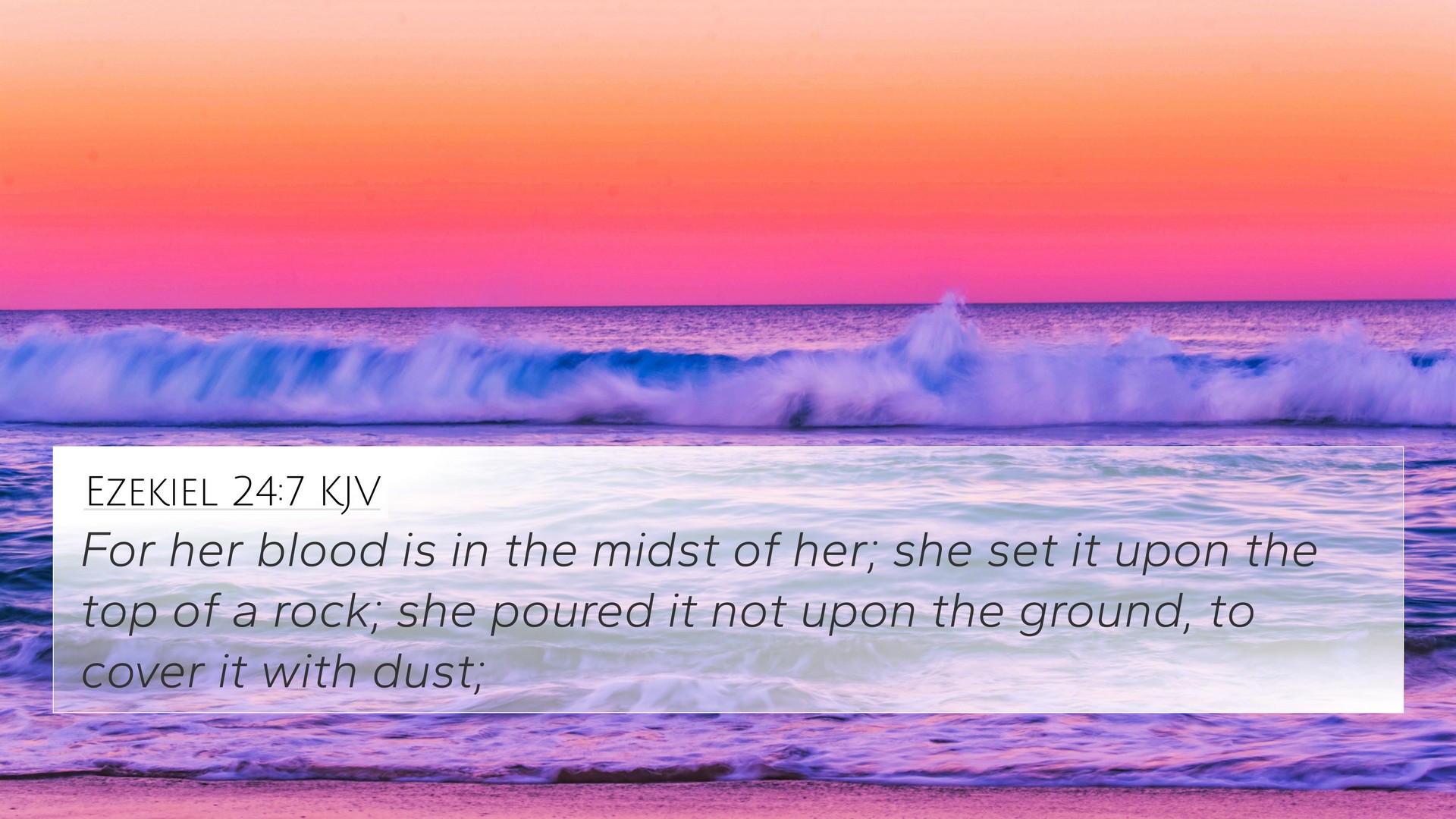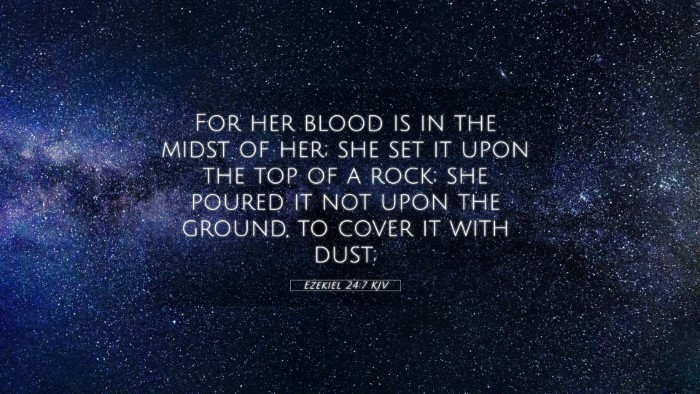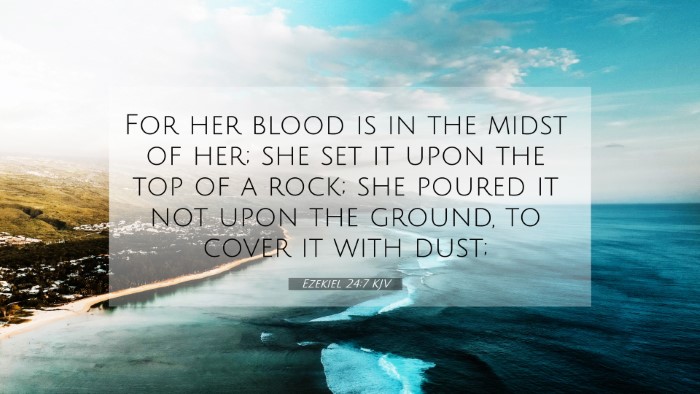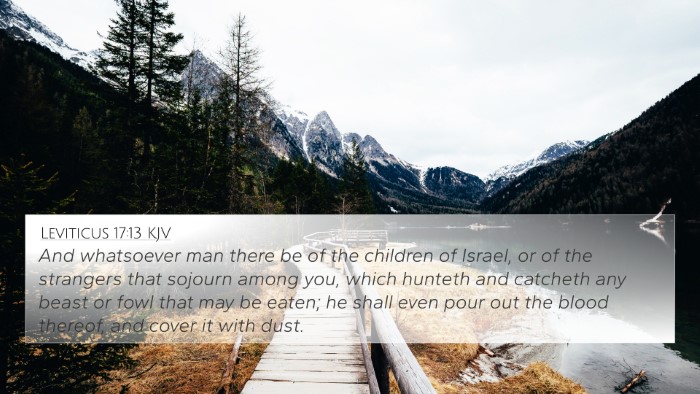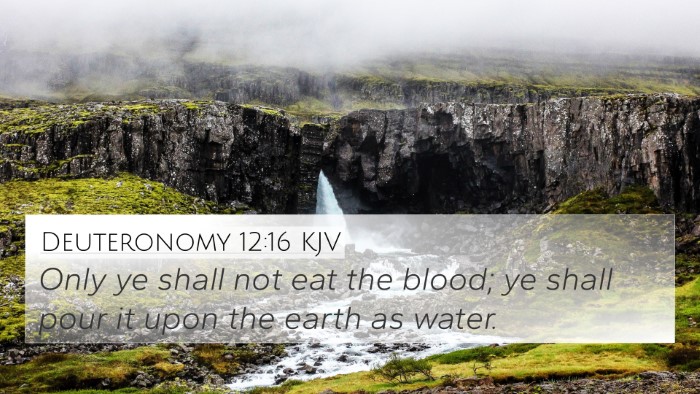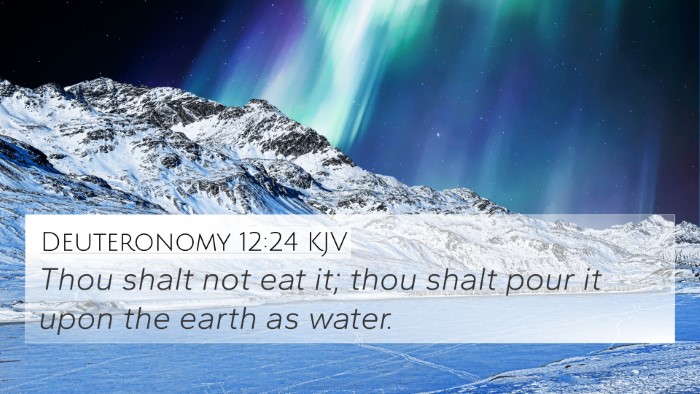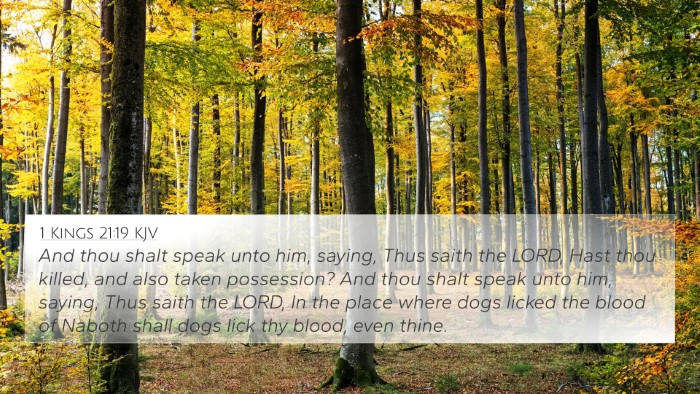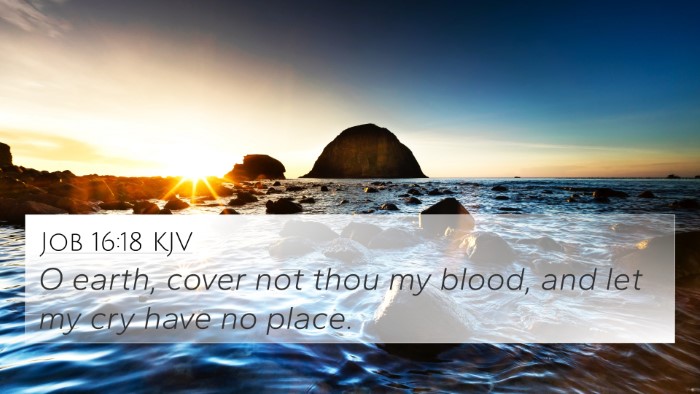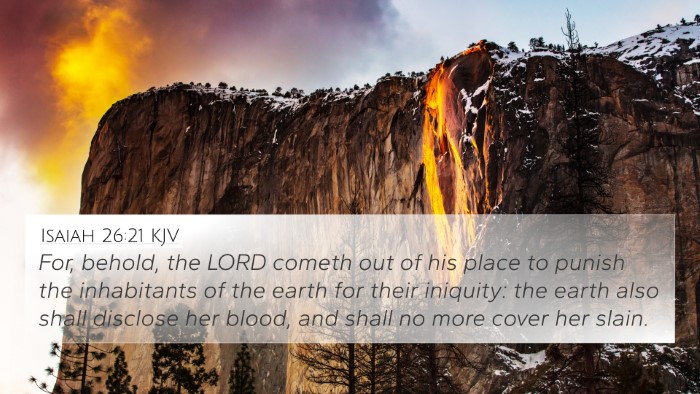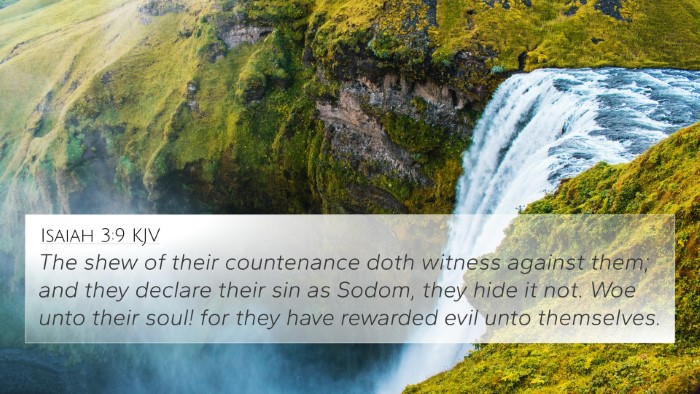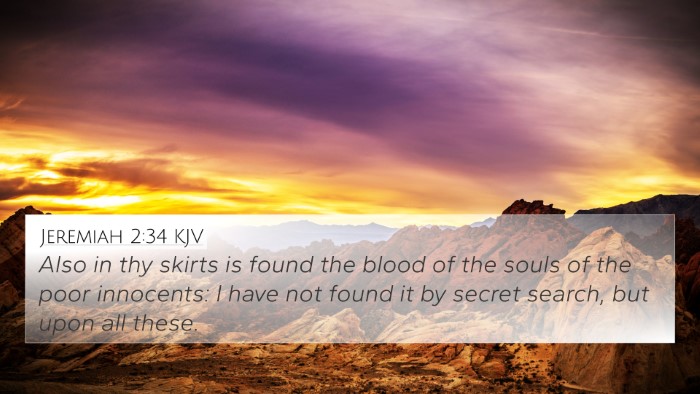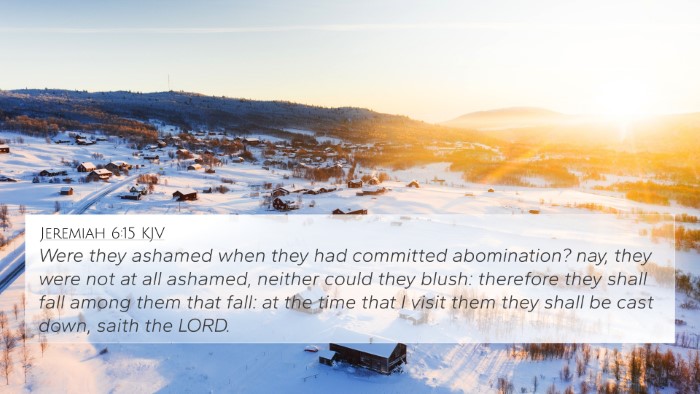Ezekiel 24:7 - Meaning and Interpretation
Ezekiel 24:7 states:
"For her blood is in the midst of her; she set it upon the top of a rock; she poured it not upon the ground, to cover it with dust."
This verse is profound, serving as a strong metaphorical statement regarding the severity of sin and its consequences. The imagery used by Ezekiel carries significant themes of accountability and the visible manifestation of wrongdoing.
Summary of Insights from Commentaries
- Matthew Henry:
Henry emphasizes the importance of acknowledging sin rather than hiding it. The act of pouring blood on a rock symbolizes the blatant disregard for the sanctity of life and the gravity of guilt, indicating that one cannot escape the repercussions of their actions.
- Albert Barnes:
Barnes elaborates that this verse reflects on the nature of sin. It implies that the blood spilled is a testimony against the individual, calling for justice rather than concealment. Pouring it on a rock signifies a refusal to hide one's iniquities, suggesting that they are laid bare before God and man.
- Adam Clarke:
Clarke interprets the verse as a divine indictment. The set imagery of blood "in the midst" indicates not only the guilt of the people but also suggests they have not repented. Instead, they have liberalized their actions, choosing pride over humility and accountability.
Thematic Connections and Cross-References
This verse is intricately connected to various others in scripture, highlighting themes such as justice, sin, and redemption. Below are notable cross-references that enhance understanding:
- Leviticus 17:10-14: Discusses the importance of blood in atonement and God's command regarding its treatment.
- Isaiah 1:15-18: Addresses the futility of worship when tainted by sin, as well as the call to repentance.
- Jeremiah 2:22: Reflects on the inability to cleanse oneself from sin, indicating that guilt remains.
- Hebrews 9:22: States that without shedding of blood, there is no remission of sins, relating the sacrifice to God's justice.
- Revelation 6:10: Inquiry for justice from the blood of martyrs, connecting the theme of accountability.
- Ezekiel 18:30: A call for repentance and turning from transgressions, reinforcing the need for accountability in sin.
- Matthew 23:35: Jesus mentions the blood of the righteous as a testimony against the current generation, tying back to the concept of guilt.
Understanding the Verse in Context
The context of Ezekiel 24 reflects the impending judgment from God against his people for their persistent sin. In this light, understanding Ezekiel 24:7 requires recognizing how it fits into the larger narrative of accountability and divine justice throughout scripture.
Tools for Bible Cross-Referencing
Utilizing various tools and methods for Bible cross-referencing can greatly enhance your study:
- Utilize a Bible concordance to find keywords related to sin, justice, and blood, which reveal thematic connections.
- Employ a cross-reference guide to explore related scriptures that align with Ezekiel’s themes.
- Explore how to find cross-references in the Bible through study guides or apps dedicated to linking scriptures.
Conclusion
In conclusion, Ezekiel 24:7 holds a crucial place in the discussion of sin's impact and the necessity for accountability. By understanding its implications through analysis and cross-referencing with biblical texts, one can grasp the broader themes of repentance, justice, and God’s desire for His people to turn away from sin.
This verse not only stands as a solitary statement but serves as a vital part of the inter-Biblical dialogue on sin and its consequences. Considering the connections between Bible verses, one can discover a rich tapestry of understanding that informs both personal and communal faith journeys.
